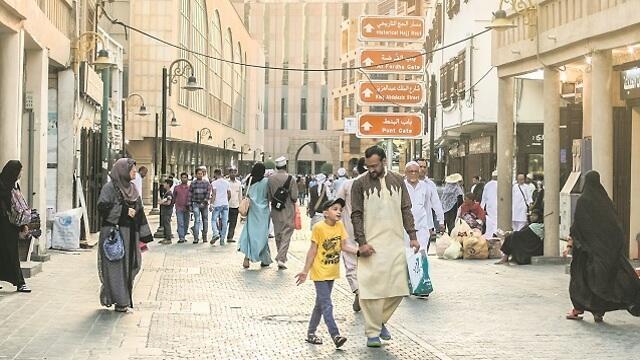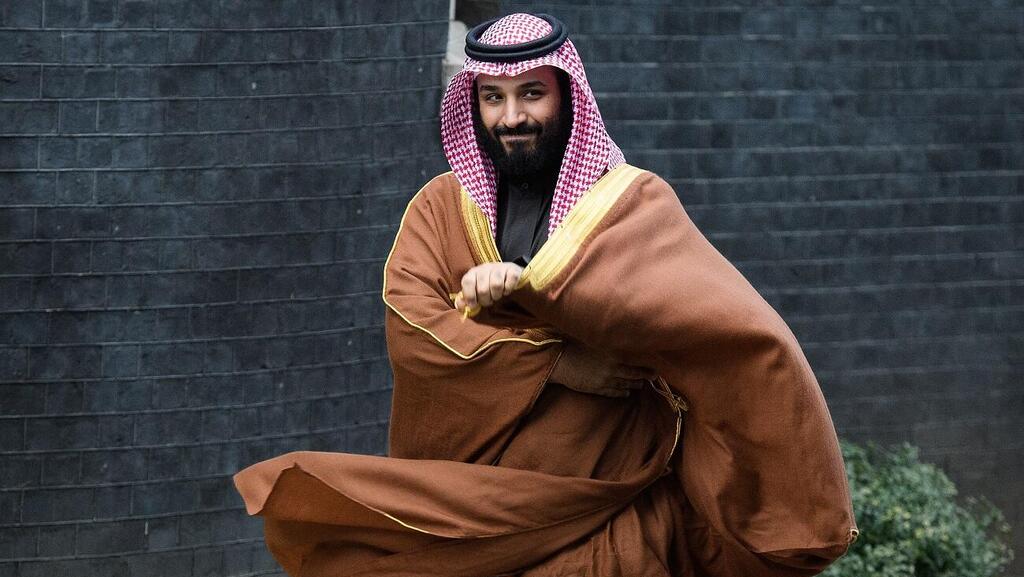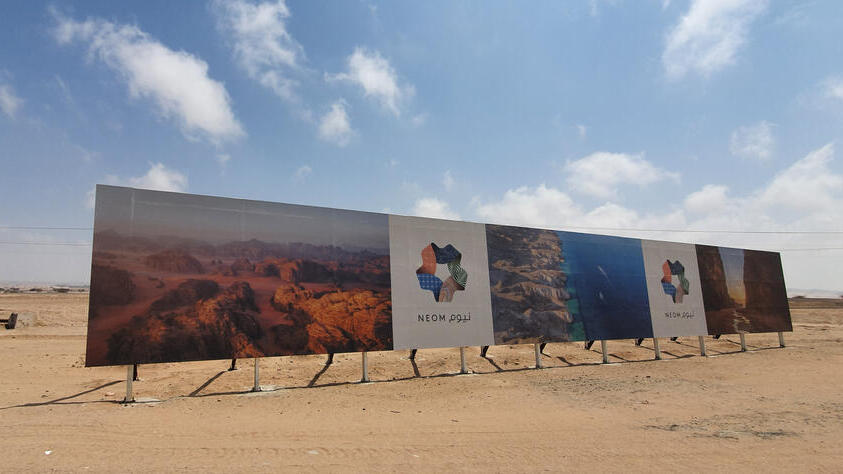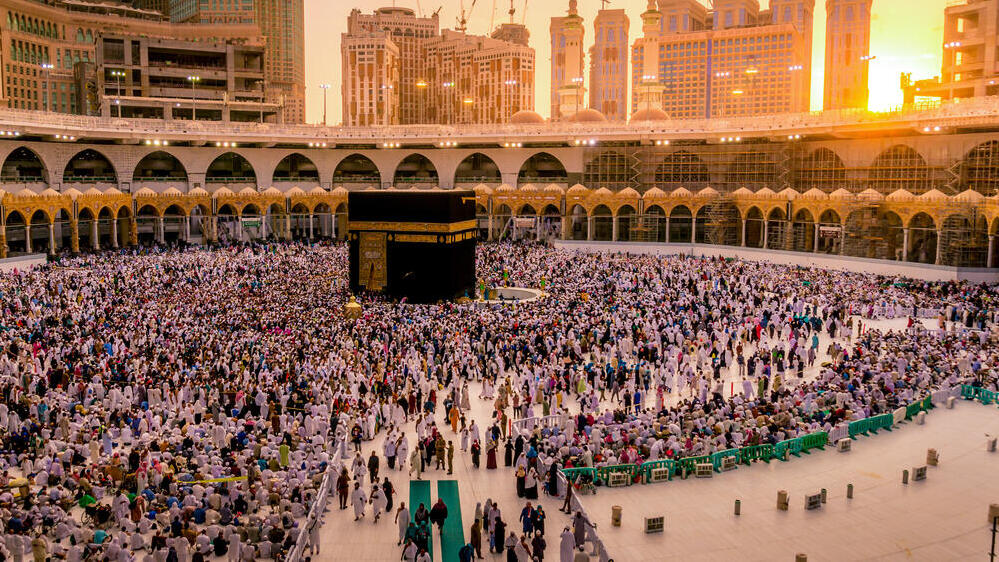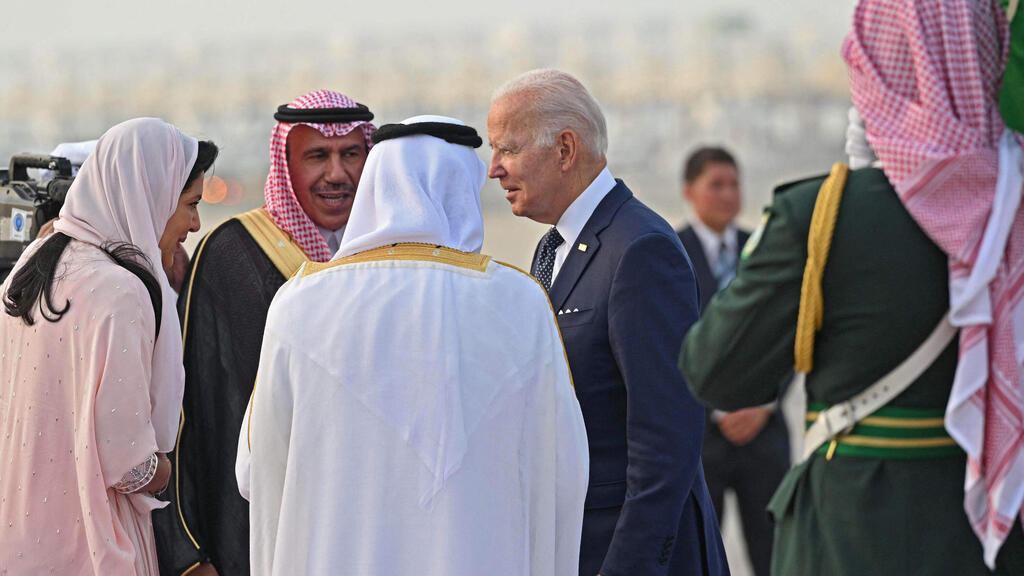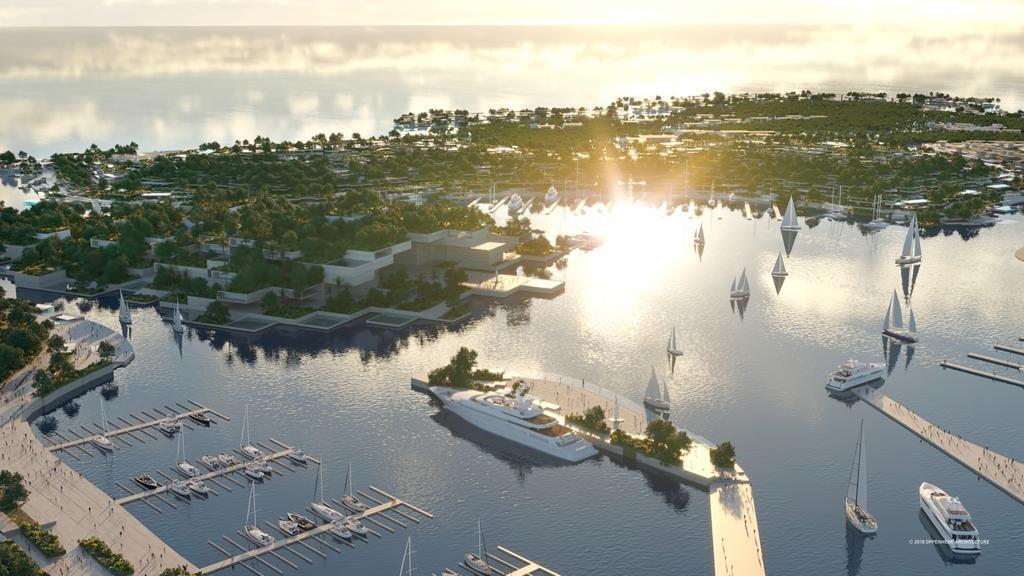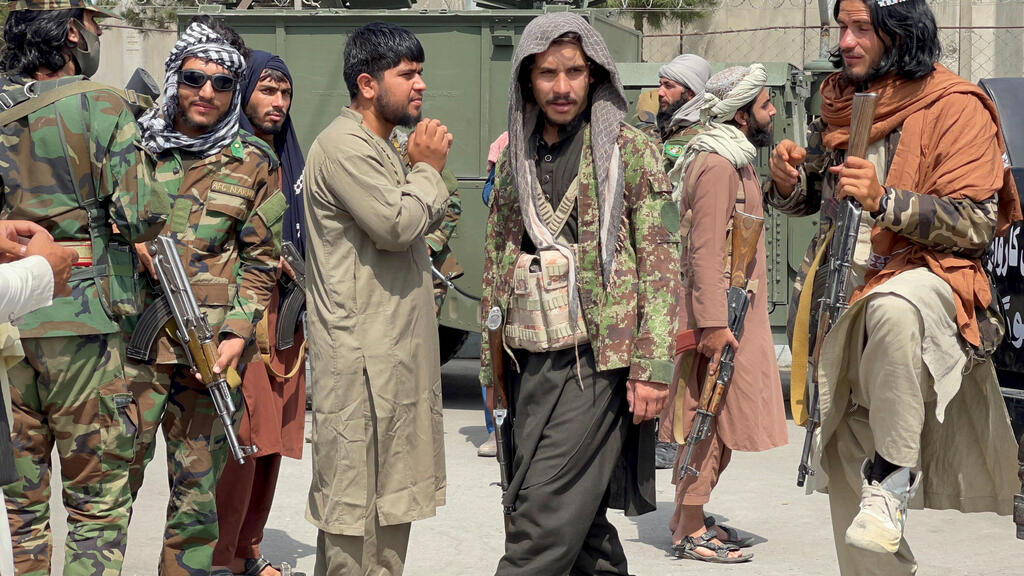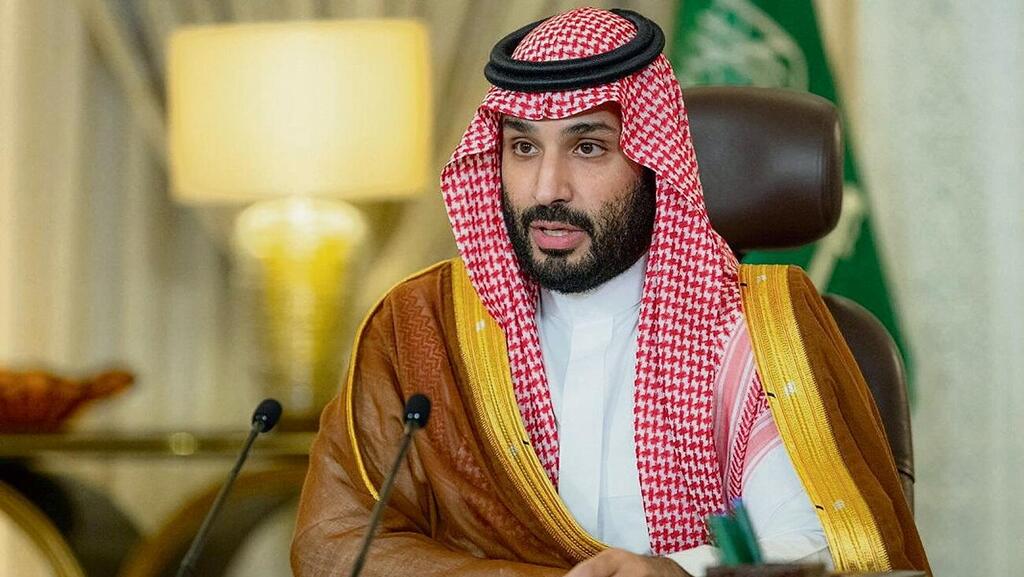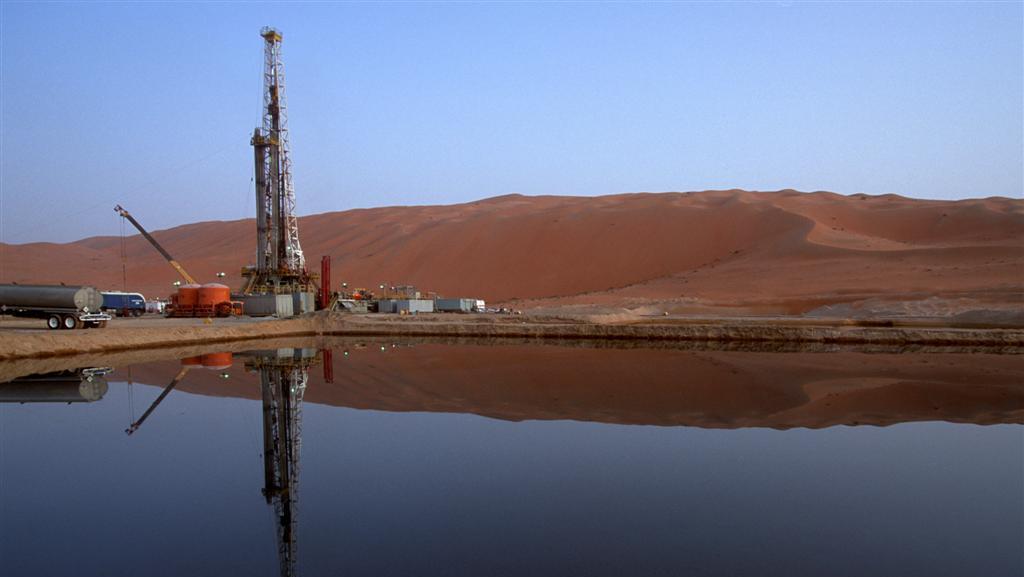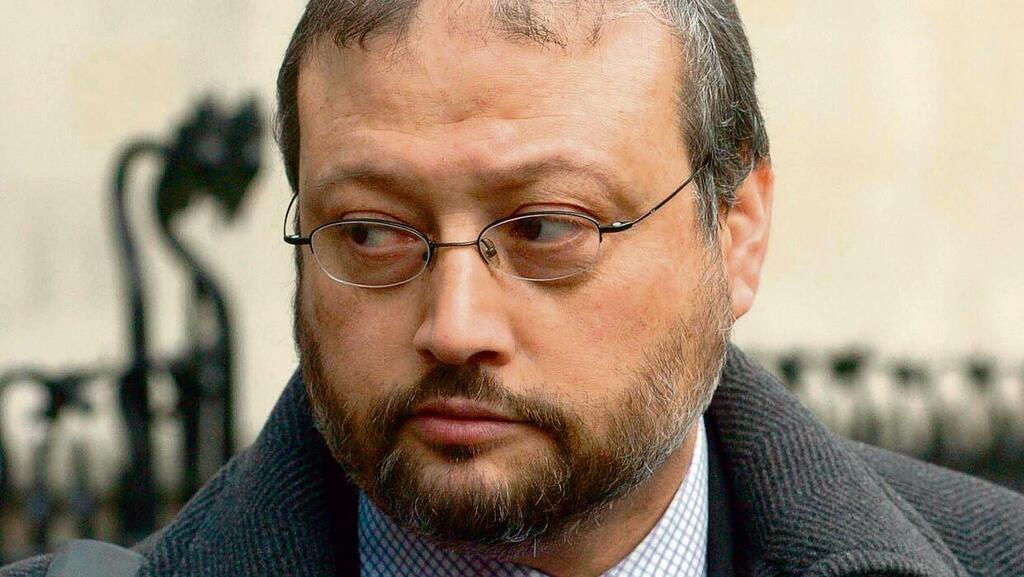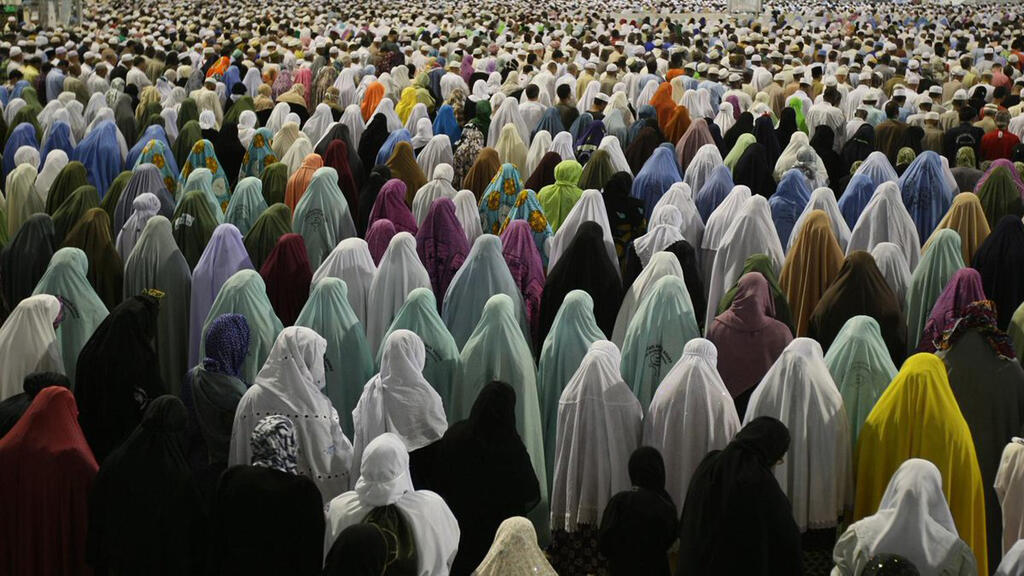Getting your Trinity Audio player ready...
Riyadh has no soundtrack.
Other stories:
You’ll hear no music here, just the noise of sirens and car-horns, traffic and the sound of the muezzin's frequent calls to prayer. There’s no music in the markets. There’s no music in shops, restaurants, malls or hotel lobbies. There’s no music blasting out of passing cars.
An old man was sitting on a stool, playing an oud outside “Café One and a Half Million.” Café patrons sipping cordatos or cappuccinos were listening intently. ”You wouldn’t hear this two years ago. The morality police would have shown up and arrested the person by now” says 45-year-old architect and father of four girls, Tawfik (all names are assumed at the request of the interviewees). ”If you wanted to study music, even just for a single hour, you had to travel 500 km to Bahrain.”
It's not that playing music is permitted, it’s just that there’s no one to implement the prohibition. Part of the remarkable reforms led by Crown Prince, Mohammed bin Salman, colloquially known as MBS, or Abu Rasasa (Father of the Bullet – for the time he sent a bullet to a business rival following a dispute).
Over the past five years, Bin Salman has decided that women may drive, have passports issued, and travel alone overseas. The country has opened its gates to general tourism (not just tourism to Mecca), scaled down the presence of the morality police, and you can go to the movies. The regulated sale of alcohol is just around the corner.
In certain quarters (locally known as “Beirut”, as opposed to the conservative “Tehran”), you can see local couples walking side by side or sitting together in restaurants. Some unmarried couples are even living together. They used to chop off limbs if were just a bit horny.
These reforms have their reasons and they come at a price: Torture, imprisonment and the execution of hundreds of clerics, business people, and women working to advance women’s rights.
Now, while women can already drive in Saudi Arabia, some more prominent women’s rights activists are still in jail. Bin Salman, who controls every aspect of Saudi life, has eliminated all power structures challenging his rule.
The reforms are influential, though cosmetic: Freedom of expression, for example, is still heavily censored and Saudi Arabia is still the world leader when it comes to executions.
“One of the main reasons that Ben Salman started the reforms was his desire to challenge Wahabism and its strict interpretation of the Quran” Tawfik explains, drinking his latte macchiato. “The people are with him on this. They want to separate themselves from Shi’ite Iran.”
And they’re still beheading people: Last March, 80 in one day
“Our society is very slow moving, very much afraid of change. We still have a foot and a half in our tradition, our history and our ancient leaders. I know it looks barbaric, but for us, it’s also justice. We need time to move on from these patterns.”
They even have Tinder
A foreign worker kept walking back and forth, cleaning up at the café, even when it wasn’t dirty. The car dealership across the street was bringing out Bentley after Rolls Royce as two foreign workers gazed in wonder at the cars. Some of the 90,000 Saudi students studying overseas at any given time are on full-state scholarships. Tawfik got into his Ferrari jeep and sped off. Women without headscarves, but rather in modern clothing continued coming into the café where the music kept playing.
The main reason for the reforms isn’t separation from the Shi’ite enemy. On becoming Saudi Arabi’s de facto ruler in 2016, for existential and economic survival, he almost immediately instituted “Vision 2030.” This vision includes reforms as well as transforming Saudi Arabia into an attractive place that will bring up annual numbers from 15 million (mostly religious) visitors to 100 million by 2030.
He has outlandish projects planned: ski resorts in the desert, laying 150 km of subway tracks in Riyadh, building the futuristic city of Neom on the shores of the Red Sea, and the jewel in the crown: “The Line”, an ambitious building that looks like it came straight out of a sci-fi movie, stretching a full 170 km, and reaching 50 meters into the sky. The city will have no cars and will be self-sufficient in terms of energy. The project is intended to house a population of nine million.
Massive construction of airports, hotels and dozens of ecological islands is already underway. Crown Prince Bin Salman this year announced his intention to set up “Air Riyadh”, a new national airline. The airline will take full advantage of the country’s location at the Asia-Europe-Africa crossroads to reach over a hundred destinations by 2030 - directly competing with Emirates and Qatar Airlines luxury brands.
The new company is expected to increase the country’s, currently oil-based, GNP by $20 million, as well as create 200,000 more jobs. He believes that a more liberal, more democratic Saudi Arabi will attract investors, and that privatizing national institutions will create more jobs in the private sector.
“Oil export has made Saudi Arabia the strongest economy in the region” Faisal, a political science professor at the Islamic University, tells us. “In addition to the vast wealth, there was also a free welfare, healthcare and education programs, alongside subsidized water, housing and electricity.
"The problem is that oil prices have fallen dramatically since 2014. There’s been a transition to innovative energy, and the United States has achieved energy independence. In 2019, Saudi rulers clarified that the country would, at some stage, exhaust her oil profits. They’re aiming for 2030.
"To create jobs for young university graduates, the economy needs to diversify. 65% of the population is under the age of 35. Bringing in Ronaldo, along with massive investment in sports is also part of the program. Saudi Arabia wants to host the 2030 World Cup. At the end of the day, Bin Salman is no feminist. He's a pragmatist.
"He’s not introducing reforms because he believes in them, but rather because they serve as a tool to fulfill his vision. He knows that women are more academic, more disciplined and harder working than men who show up at ten, go to pray at 12 and leave the office at 2. Women will provide him with efficiency and productivity. But it’s a long, uphill struggle that stresses individualism and self fulfillment - which are alien to our society.”
Women can register for the pilgrimage to Mecca only with other women. They can go to doctors and university without their guardian (who may be their father, husband, brother or even their eldest son). They can use Careem (the local equivalent of Uber) and even Tinder.
Officially, premarital sex is obviously illegal. “When I was studying overseas,” Latifa a saleswoman in a mobile phone shop, donning neither a headscarf nor make-up, tells us “girls from other countries kept telling me that it was just history. But history is part of our identity. We’re raised with history at home, at the madrassa, in the mosque. We don’t forget history. We have hatreds and rivalries that are thousands of years old.”
History is deeply entrenched here. The defeat of the last Muslim, Ottoman, Empire in the First World War over a century ago is ever-present. There’s a yearning for oriental Constantinople over modern Istanbul and for a sultan who was the ruler the entire Sunni nation.
The khalifas came to an end because of two European empires and the modern Turks who, under Ataturk, led a secular nationalist movement that was not in the name of Islam. History and the Muslim struggle against the infidels are an important part of Saudi identity. To advance, they need to let go, stop cleaving to Islam that used to be the most modern, creative and rich civilization influencing the whole world.
The West is still viewed as the greatest danger to Muslim values. But Saudi Arabia must choose: Iran or the Free World. “It was the West that postponed these changes,” says Faisal.
“The U.S. invasion of Iraq and it’s ensuing chaos, the Arab Spring and the Obama years that saw America cozying up to Iran and treating Saudi Arabia with contempt. Now is the time to move closer to the West, and there are urgent problems. We just don’t have the time to think about whether women are wearing nail varnish.”
Attitudes to Israel also form part of this change. Whereas, in the past, America was hated due to her stand on the conflict, today Israel is viewed as a boon in Saudi Arabia’s renewed foreign relations.
“There’s a huge admiration of Israel,” tells me Tawfik the architect. “Our wealth is simple to comprehend. Israel has made her economy work without such resources. We have a common enemy. For ‘2030’, we need Israeli innovations. Saudis Arabia’s offer to put an end to the conflict is the best offer Israel has yet received. We used to think that Israel was a passing thing that wouldn’t survive in a region of 1.5 billion Muslims. We’ve changed our minds.”
But words and geopolitics are not the same. Sunni Saudi Arabia, which has shared spearheading against the Shi’ite enemy, shocked the world in March when it signed an agreement with Iran. Crown Prince Salman then invited the president of Iran for an official visit to his country.
This is an enormous contribution to tri-part Israel-Saudi-Iran relations. It's also an international earthquake: Saudi Arabia has been an ally of America for years. This agreement, brokered by China, turns its back on this long-standing alliance and represents the rise in China’s global power.
But on the streets of Riyadh, ignoring that punch Salman gave Biden, they understand where they’re heading. And it makes no difference if it's Chicago or Shanghai.
“We can no longer allow ourselves to not be part of globalization,” says Faisal. “The young people returning from their studies overseas in the West want to work, but they also want Western values including human rights, women’s rights, and ultimately gay rights too. There’s talk of incentives for people to learn about their own faith.
"It’s a difficult process. There’s a generation here that won’t agree to it. Clerics here have millions of followers on Twitter. There are also fears. But we had two sets of circumstances that necessitated the reforms: America’s loss of power, making us realize that we need to be more independent, and the technological revolution exposing Saudis to more information. In turn, Saudis addressing their anger towards their own country, not just towards the West.”
“Efforts to implement reforms here have always failed,” tells us Rafik, a real estate millionaire from Jeddah who had come to Riyadh to see Ronaldo’s first game in Saudi Arabia.
“Economic reforms failed due to low output coupled with a high birthrate. We produce oil, import everything and watch South Korea and Singapore with envy. There hasn’t been an Arab leader since Nasser who has won support and admiration outside his own country. Ghaddafi, Saddam, Hussein and Assad are no more than a blend of Soviet and Nazi doctrines.”
No wonder so many have chosen to turn their back on modernity, returning to religion. Wahhabism, which was born in Saudi Arabia, preaches for the return to pure Islam and, with millions of believers, is among the most influential movements in the Muslim world.
The enormous wealth and American companies’ involvement in the oil business have created vast social and economic discrepancies that have strengthened Wahhabism, spawning twin sons: The Muslim Brotherhood and the Taliban. The war is no longer against the West, but rather against locals trying to Westernize the Arab world.
“Islam has always had fedayeen - military groups willing to sacrifice themselves for a larger campaign. They’d stab you and were willing to die, but they would never kill themselves,” says Rafik.
“How does this connect to modern terrorism and suicide terrorists? Terrorism has made us hated. People all over the world are afraid of us. That’s part of our dissociation from the Palestinians. Bin Laden dragged America into this chaos. But Bin Laden lost and these reforms fly in the face of Bin Laden’s path.“
To implement these reforms, Bin Salman had to counterbalance them by dismantling any kind of power that might endanger him. In addition to widespread arrests, he reduced the volume of the muezzin’s call to prayer by a third, entered an acute diplomatic crisis with Canada, fought Qatar and Yemen, was berated by Lebanese prime minister, Hariri, and spied on and hurt Saudis who had left the country (including Jamal Khashoggi. We’ll get back to him.)
In November 2017, Bin Salman interned hundreds of Saudi Arabia’s biggest businessmen in the Ritz Carlton hotel (where the cheapest room goes for 600 Euro a night). He had them tortured, interrogated and beaten until they confessed to crimes of bribery and corruption. Billions were confiscated from their accounts and transferred to the state.
“We’re still surprised that no blood has been a split as a result of these reforms,” says Faisal. “But when the real struggle for human rights, freedom of speech and press freedom kicks off here, there’ll be blood.”
“People fear change and they’re afraid of losing power. Bin Salman is smart. He understands that you can’t suppress mankind’s mind and soul’s desire for freedom forever. The problem is that people don’t fully understand what democracy is. What would happen, let’s say, if a party advocating a return to Wahhabism was elected with a clear majority?”
“We were raised believing that the West is living in Jahiliya, Paganism - a decadent swamp, obsessed with commerce and sexual permissiveness. I was afraid of encountering it when I went to study in the West, I was afraid of it. But the true trauma turned out seeing that it wasn't as diabolical as I thought."
Bin Salman’s most important goal is maintaining the royal family. He fought the Islamic Jihad’s khalifas, ISIS and the Muslim Brotherhood because he understands that Radical Islam has an insatiable appetite that is eating away Saudi Arabia from within.”
“The Internet exposes you to the world,” says Tawfik, “and you discover that you, along with your language, are ignorant. When I went to study in Ireland, I thought Guantanamo Bay was like Auschwitz.
"I then discovered that to be ignorance. You start examining where else you’re ignorant. There are hundreds of thousands like myself. The West must be patient. There are a lot of Saudis who think it’s a Trojan horse, intent on destroying our society from within anyway. It’ll take time.”
There are pockets of violence. One interview we conducted was in a café opposite Diriyah Square, derisively known as “Chop Chop Square.” Men are brought here after Friday prayers to see beheadings and women being stoned to death.
Tens of thousands of satellite dishes grace the surrounding rooftops. Most people speak excellent English that they need to communicate with foreign workers. Saudis learn English via satellite broadcasts. There’s a hunger for individuality. Perhaps the West hasn’t won the war in the clash of civilizations, but it hasn’t lost either.
“Because of the oil, we haven’t needed to address economic problems that characterize the Western world,“ says Faisal, “but we’re clearly behind – economically, in science and technology. We can let ourselves revert to religion if something doesn’t work. You can’t say science isn’t advancing here because we haven’t walked in Allah’s path and he’s punishing us.”
There’s too little knowledge and too little freedom, too much illiteracy and zero patenting. If you remove the oil business, Saudi Arabia comes out bottom on every important economic parameter.
Banking and commerce are subject to Islamic prohibitions; Islamic polygamy and inheritance laws make forming financial partnerships difficult, meaning you can’t start doing business with someone without involving the whole family. Production is low and corruption is still sky-high.
To continue housing subsidies, oil must remain at $100 a barrel. Without this, the country will become impoverished. This enormous responsibility has fallen onto the shoulders of Bin Salman, especially considering that the party will be over in seven years. In 2015, as he began laboring on his “2030” vision, Bin Salman said: “I have 15 years to redirect my country.”
The vision is Singapore, but under the pretext of the Emirates, more oriental. With Emirati president, Mohammed bin Zayed Al Nahyan (MBZ), Bin Salman imposed a siege on Qatar and threatened the country with war. Bin Salman is also responsible for the brutal war with the Houthi in Yemen that has killed tens of thousands in battle, and through cholera and starvation.
And still, Thomas Friedman writes in the New York Times that Bin Salman “will not only change the character of Saudi Arabia, but the tone and tenor of Islam across the globe.”
The affair of columnist and former state advisor, Jamal Khashoggi, who fled Saudi Arabia for Washington and sharply criticized the Saudi government, is the worst incident in which Bin Salman has been involved.
Khashoggi disappeared in the Saudi embassy in Istanbul and, according to Western intelligence agencies, was murdered with intense cruelty. Bin Salman then almost became an outcast in Washington. Biden later folded and shook hands with him.
“His death was a major blow to the image of Bin Salman’s reforms,” says Faisal. “Some countries boycotted him and Saudis understood that there are no lines he will not cross, that you cannot challenge his image, even if you’ve fled the country.
"He has more power than any king before him, and there are no checks and balances. Wall Street, Hollywood, Silicone Valley and the White House celebrated Bin Salman’s reforms while thousands were still being hunted down in Saudi Arabia.”
"Bin Salman’s arrogance in the Khashoggi affair cost him dearly. People are now demanding more freedom than hegemony, uncensored information, freedom of conscience and expression. He can no longer throw bloggers in jail for five years for an opinion, Zionism or sarcasm. It’ll cost him world public opinion, which is important to him now. Trump and Bin Salman conducted a relationship based on common needs, not common values.
"Trump didn’t teach the Saudi leader that there is a price to pay for deviating from the norm. One might say that Khashoggi was unlucky” says Tawfik. “He was simply ahead of his times.”
In the meantime, the main beneficiaries of the reforms are women. In the past, a woman might have preferred living as a beaten and rejected wife within a respectable family structure. Today, women are refusing arranged marriages. They don’t want to live with the shadow of guardianship cast over them. They want to choose their own lives, rather than have their lives chosen for them.
A further reform relates to rape culture: Until a few years ago, the rape of girls under the age of ten was silenced, so as not to damage her marriage chances. The mothers said that they prefer their son rape his own sister than a strange woman. Since 2004, when women were first permitted to study law, much progress has been made in this matter as well as in employment, family and inheritance laws relating to women.
Rape victims are ascribed confidential hearings. A woman’s testimony, however, is still regarded as half that of a man, and a man can still divorce his wife with a WhatsApp message reading “I divorce you” three times.
The country’s clerics used to claim that women had a quarter of a brain and are forbidden from driving because it endangers their fertility. But they didn’t win that round. “Bin Salman is very young. He’s connected to young people and vice versa. He also plays video games. He plays the piano and shakes Western women’s hands, making eye contact. He has enormous charisma. They call him the agent of change,” says Faisal.
Bin Salman aims to integrate women into the workplace. His target is a 30% female workforce, clearly allowing them to work with the opposite sex, live on their own and dress in modern clothing. You can buy books in English, and books that teach English. Philosophy is also okay now. “You used to hardly be able to breathe here,” says Latifa from the phone shop. “I’m now my own guardian.”


